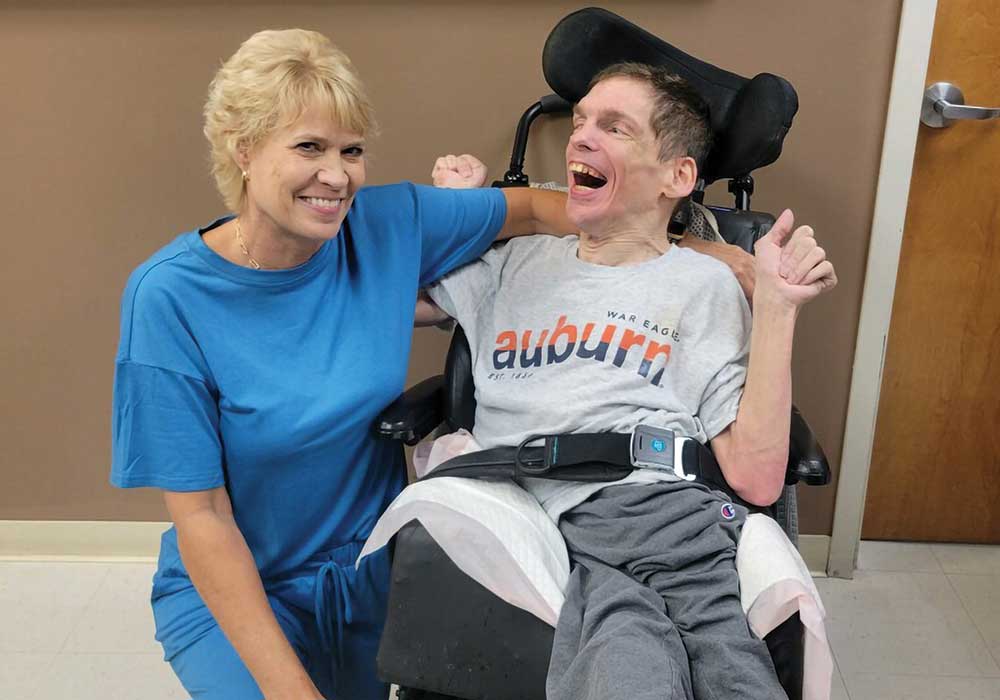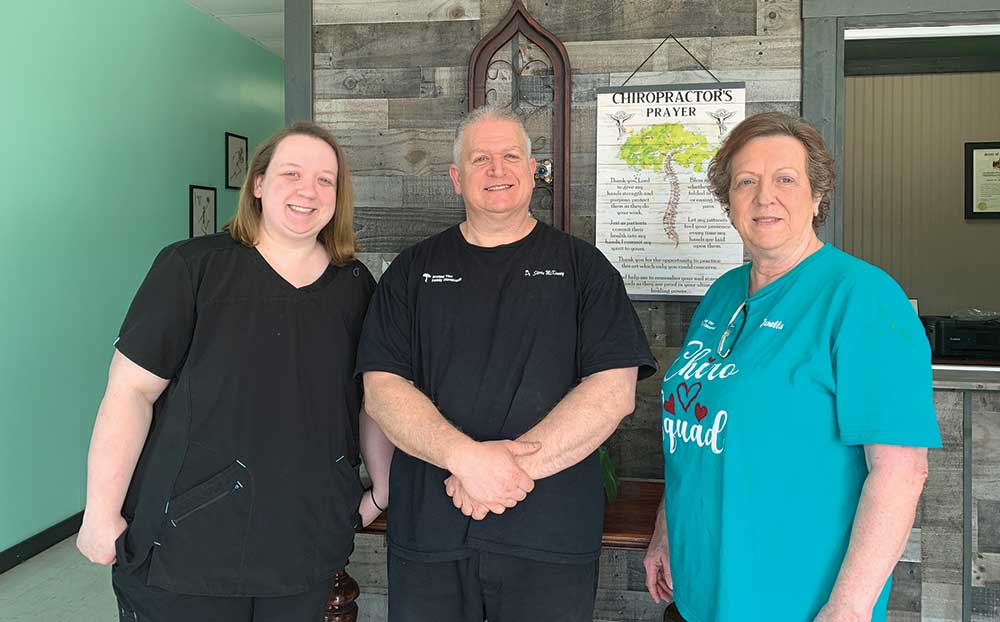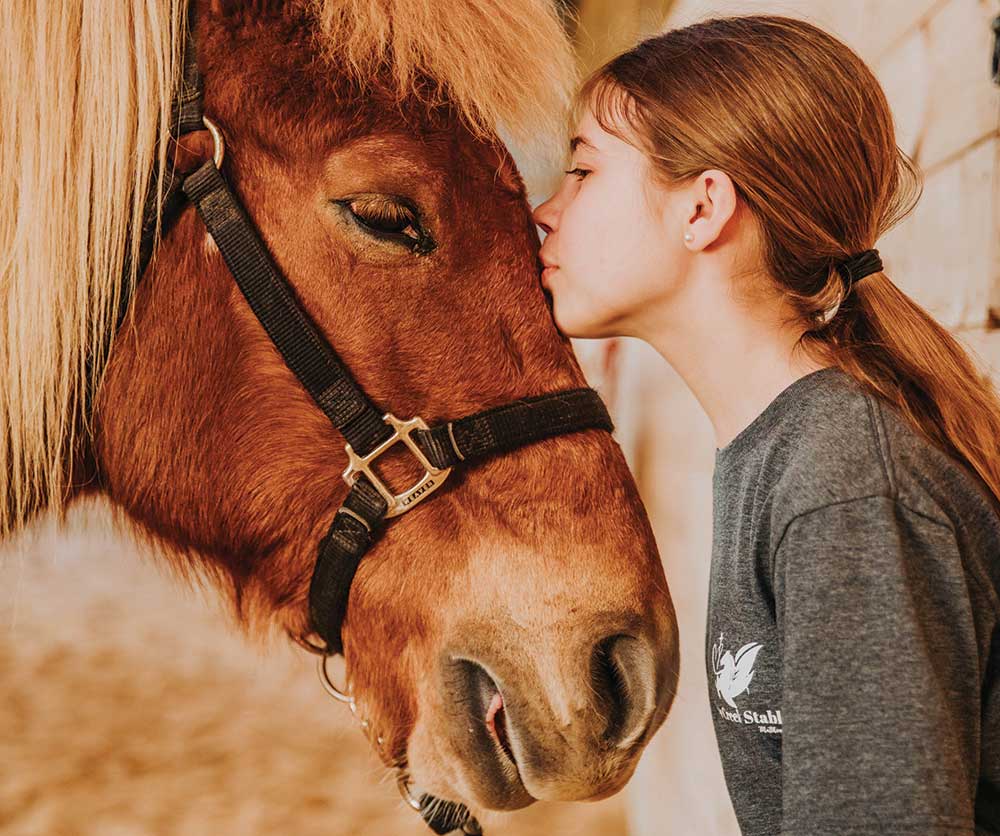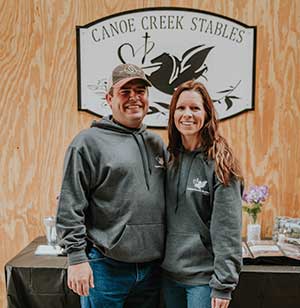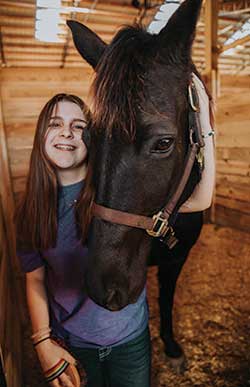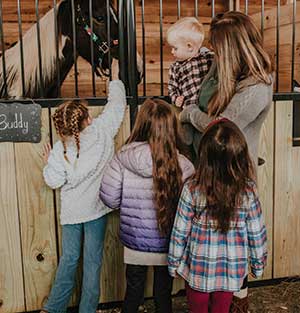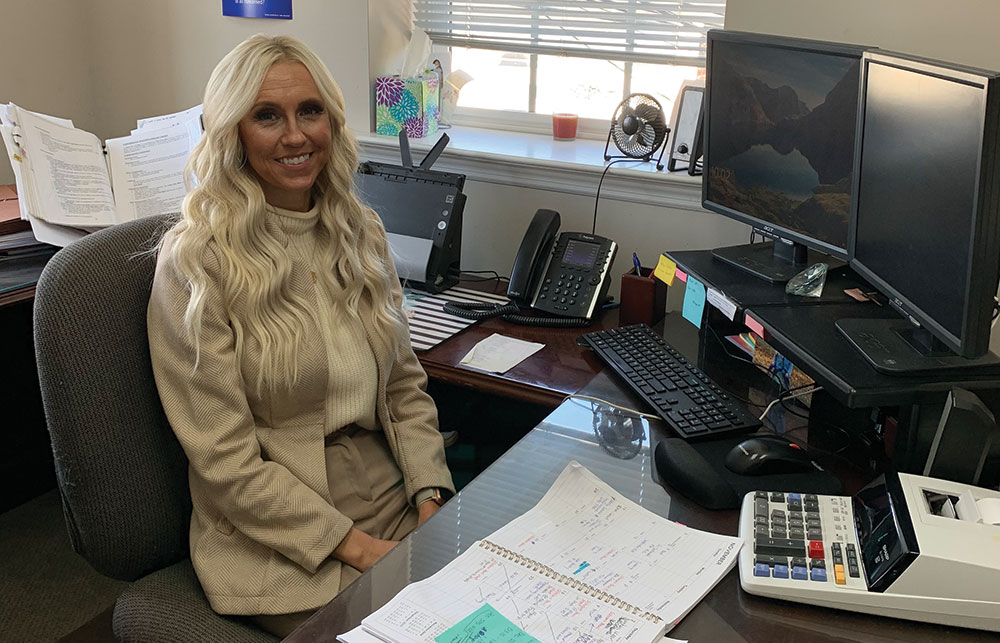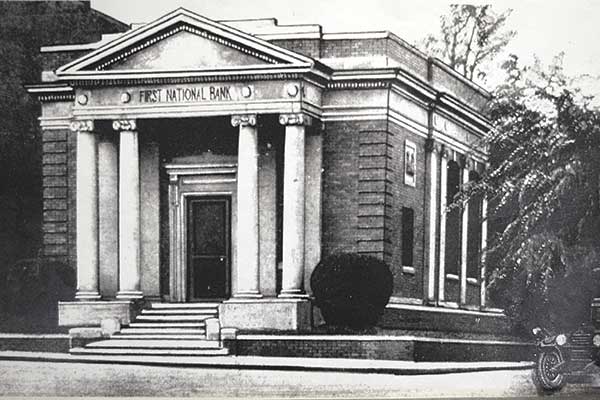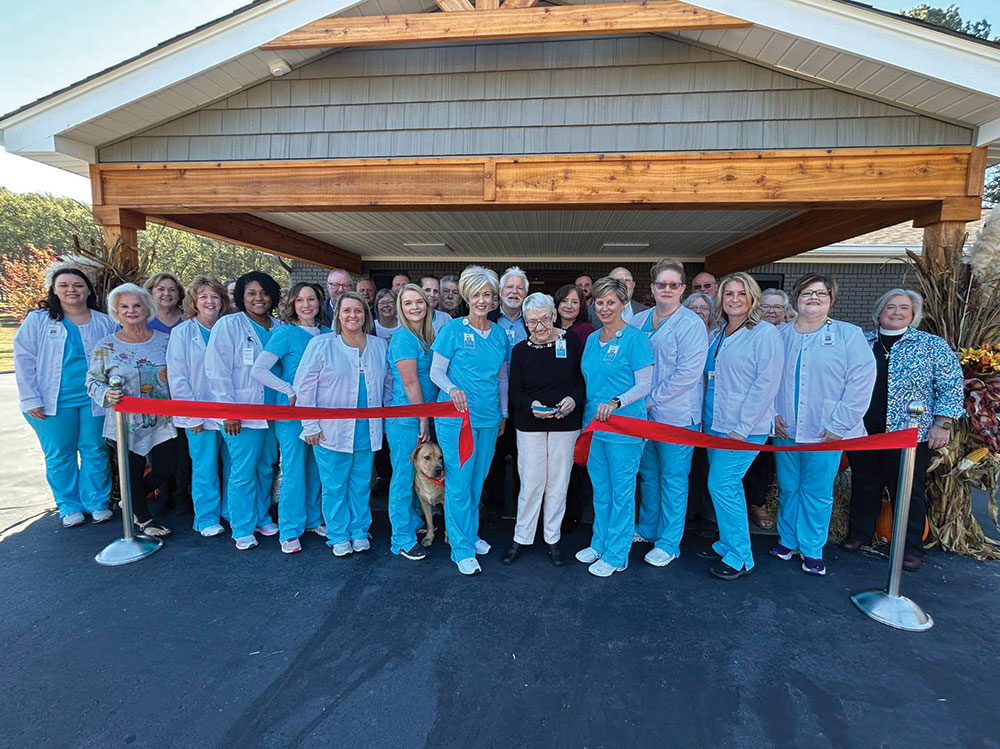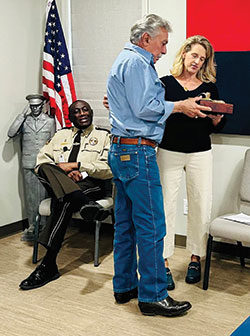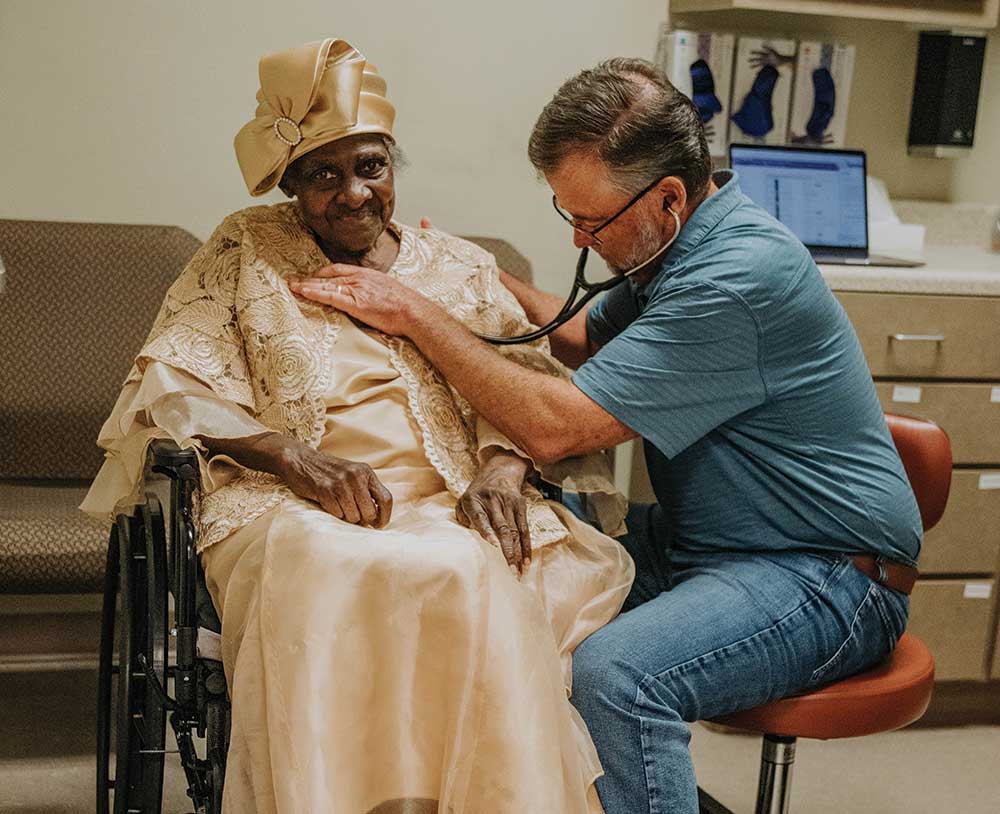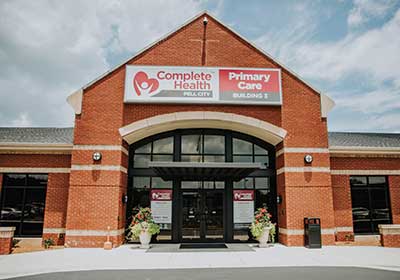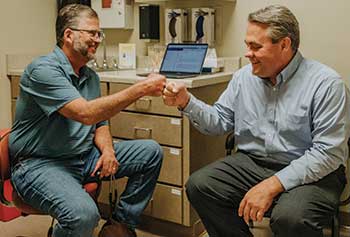Complete Health’s Joy St. John has had a lifetime desire to take care of people
Story by Paul South
Photos by Mackenzie Free
As a teen, before Joy St. John and her family moved from the Dallas County community of Tyler to Pell City, the health care bug bit her.
She was a candy striper, one of a small cadre of young women clad in red and white striped uniforms, who dispensed bedside smiles and kindness to the sick and their families.
“That’s what started everything and drew my interest to nursing,” she said. “Seeing (nurses) help people, I thought that was something that I would want to do.”
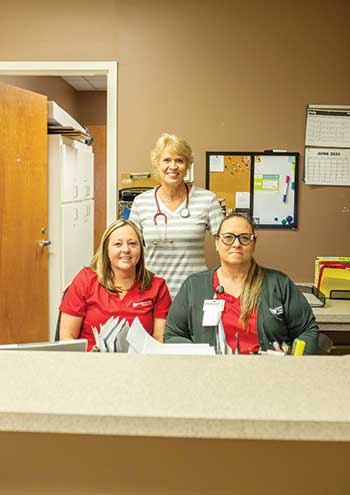
Fast forward. St. John earned a degree in nursing at UAB and a graduate degree from the Ida B. Moffett School of Nursing at Samford to become a nurse practitioner and worked as a nurse at Children’s Hospital of Alabama in Birmingham.
Now, she’s back home in Pell City, serving as a nurse practitioner at Complete Health.
A nurse practitioner is a registered nurse who is qualified through advanced training to assume some of the duties and responsibilities once reserved only for physicians.
In Alabama, nurse practitioners are required by law to work under the supervision of a physician.
According to the federal Bureau of Labor Statistics, nurse practitioners are one of the fastest growing professions in the United States. It was projected that the number of N.P.s in the country would grow some 45 percent between 2022 and 2032.
Increasing demands on doctors have triggered the growing demand for nurse practitioners, St. John said.
“(Doctors) just don’t have the time to see the amount of people that they have at their practice. (Nurse practitioners) are a great way to get patients in and seen, and we can actually be their primary care doctor if that’s what they wish.”
Complete Health Pell City is part of the Complete Health family of clinics in Alabama, Florida and Virginia. But while the Pell City facility is part of a larger corporate umbrella, it still cares for patients in a hometown way.
St. John works primarily in family medicine. “I’m a primary care physician for a good number of people. I diagnose problems, take care of chronic problems,” she said. “Sometimes people come in with undiagnosed medical problems. And then, we can start being their primary care provider and start doing preventative care.”
Complete Health Pell City also seeks to educate patients and their families about their condition.
As Pell City and St. Clair County have grown, St. John has seen her practice change. Complete Health has become a “one stop shop” for health care. “It’s definitely gotten bigger, with the addition of more doctors and the addition of more nurse practitioners,” St. John said.
“I have been here for 14 years. It’s been a great service to the community because we have CT scan, ultrasound and MRI, our own pharmacy, and we have a lot of specialty doctors that come in so (patients) don’t have to drive to Birmingham or Anniston to get specialty care.”
What sets Complete Health Pell City apart? “We can take care of the whole person,” she said. “We even have an urgent care that’s open seven days a week. Even after hours, they would have access to their records as far as their chronic conditions. We generally get people in pretty quick within one to two days.”
The business of healthcare, specifically navigating the huge health insurance marketplace, is the profession’s biggest challenge, she said.
“You sometimes have to modify a person’s plan of care because of insurance,” St. John said. “Their insurance sometimes won’t cover a certain medication or a certain test they need. It’s sometimes very frustrating to try to diagnose problems and take care of the patient when insurance won’t cover it. So, you have to make other decisions and talk to patients about what’s best for them.”
She added, “There’s no use in me prescribing an expensive medicine when they’re not going to pick it up (because of cost), when we can talk about it and go to another option. The amount of insurance plans out there is challenging for us.”
The presence of Complete Health and other healthcare providers has impacted rural communities in a positive way, giving those once-underserved areas better access to health care.
“Companies are able to put nurse practitioners out in rural areas where they might not be able to place doctors,” St. John said. “That’s very important for them and all the surrounding towns and cities to have access to health care.”
In the South, perhaps the most trusted people in the community are pastors and doctors. St. John has lived in Pell City since the 11th grade. She believes that makes a difference in terms of the doctor-patient relationship. That difference sometimes is seen in tangible ways.
“They send me cards on my birthday, send us Christmas cards, or you know, they know the details about me and our staff’s lives. It makes a difference, and they pay attention. We care about them, too.”
There are other little things that make her clinic seem like an old-time country practice that stretches beyond paying a bill.
“They bring us fruit, cakes, things like that,” St. John said. “Just like the old days. It’s one of the joys of practicing medicine in a small town.”
And, as you might expect, she often encounters her patients at the grocery store or elsewhere out and about.
“They’ll speak to me, or give me a hug,” she said. “It means a lot.”
And sometimes, they want a diagnosis for a malady among the cucumbers and collards in the produce aisle. “Sometimes they do,” St. John said. “But that’s a whole other story.”
St. John has served as a nurse practitioner for 24 years, beginning with a decade at UAB. Before that, the mother of two grown sons and a grandmother of two boys worked for 10 years as a registered nurse and nursing assistant at Children’s.
Like the candy striper experience, something closer to home deepened her commitment to a health care career – her dad, Lee Rhoden, and his last, long battle.
“When I was 26, my father passed,” she said. “He had lung cancer. I was able to offer my services. Just having someone in the family that knows medical terminology after a diagnosis is a blessing. Caring for him was a blessing. It pushed me toward the nurse practitioner part because I just wanted to do more than punch a clock every day. I wanted to really make a difference.”
The youngest of four girls, St. John recalled one piece of advice her dad gave her, wisdom that sustains her on hardscrabble days.
“He always told us, ‘You get an education and be able to provide for your family. Don’t depend on anyone else.’ He always pushed us to set high goals. That was the beginning for me.”
For St. John across the years, a number of patient encounters affirm that she embarked on the right career journey. Those happen, she said, “all the time. I’ve diagnosed several new diseases or caught things that were missed before,” she said. “We have to take those moments and make them last until the next one. It’s the little things. People really do appreciate you.”
She added, “It’s tough not to bring things home with you. We’re human, too.”
Sometimes, she said, her profession gets unfairly labeled as not caring enough. But she and her colleagues at Complete Health Pell City are deeply committed to their patients, she said.
“This is a hard profession,” St. John said. “If you don’t love it, you aren’t going to make it. And you have to love people when they’re well and when they’re sick, when they’re mad, or they’re depressed. You have to show them empathy and sympathy. You won’t stay in this profession if you don’t love it.
“The Lord has a reason for placing us where we are,” she said. “We may be the one person who needs to tell them it’s going to be OK, and we’re here to talk about it.”











